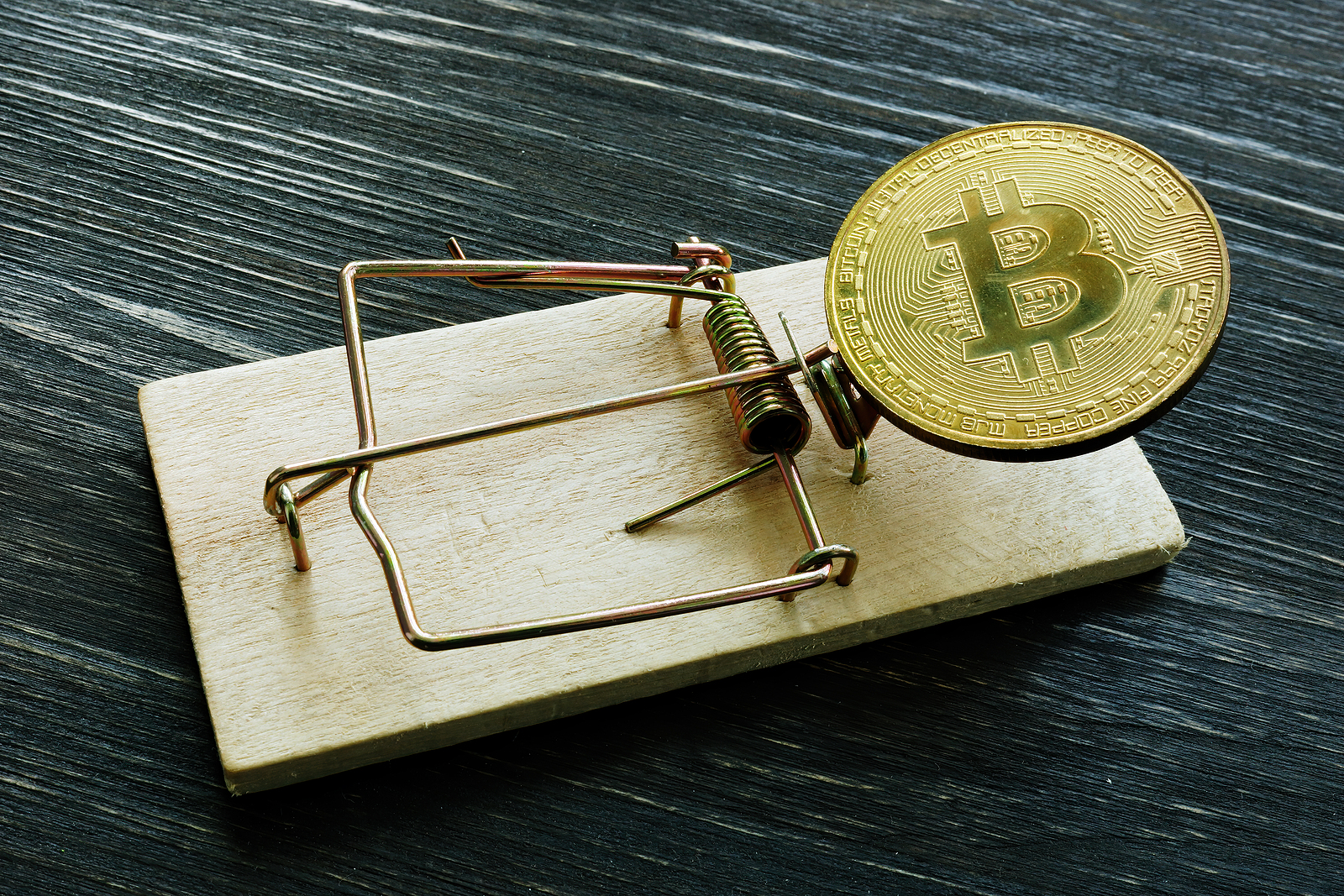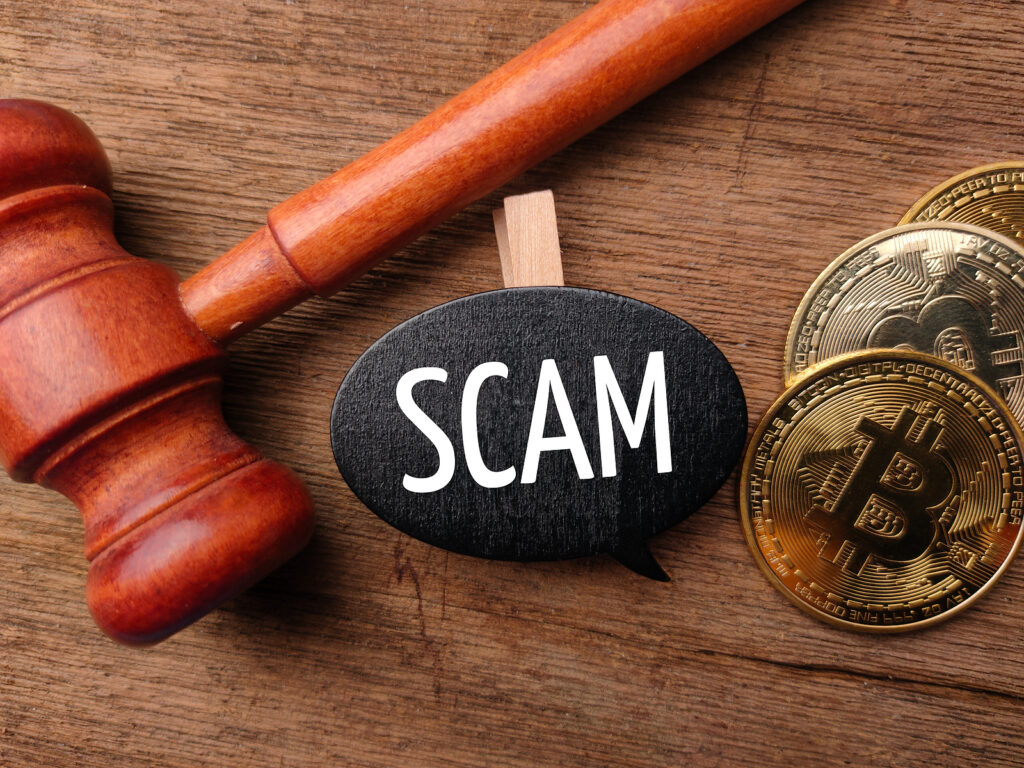-

How to Stay Watchful For Crypto Scams
One of the unfortunate aspects of any new technology is the myriad of ways that scam artists can remove unsuspecting investors from their money before the scams become widely known. This has been specifically true for cryptocurrencies.
Over 2021, scammers took approximately $14 billion in cryptocurrency, with about $3.2 billion outright stolen, according to the data firm Chainalysis, making it a record-breaking year.
This doubled 2020’s figures of $7.8 billion. Unfortunately, with the current boom in interest, scammers have found many new opportunities to exploit the high-tech nature of these currencies, which will probably attract even more sophisticated scammers in the future.
What Has Led to the Rise in Crypto Crime?
Crypto crime can be broken down into two categories: stolen funds and scams. Most thefts have been traced to errors in the protocols which have allowed hackers to exploit them. Scams, however, are targeted at users themselves.
While there’s an inherent risk in crypto in general due to its volatility, there’s as much risk in having your investment disappear because of a well-conceived scam. Like any other form of financial transaction, investors should do their homework and confirm where they are putting their cash. Especially with new crypto startups, investigating their credibility can be difficult, leaving investors even more exposed.
Initial Coin Offerings
New forms of cryptocurrency are being perpetually mined, often offering initial coin offerings. But these are ripe for scams. Like all things, if it sounds too good to be true, it probably is. So when an investor is approached with “opportunities” to invest in a newly mined coin promising huge returns, it can potentially be a scam.
It is critical to look behind the hype to ensure real credibility, no matter how good a deal it seems like.
Digital Games
One of the newest scams concerning cryptocurrency is referred to as “rug-pulls.” This is where developers build what appears to be fully legitimate projects, creating new games and worlds on blockchain and getting newcomers to buy tokens for the game. The demand drives up the price, allowing the scammers to sell their own holdings and disappear.
Demanding Payment in Crypto
When confronted with what appears to be a legitimate individual or establishment, if they only accept payment in the form of cryptocurrency, it will be a scam in most cases. Because of the newness of the currency, experts say most credible companies aren’t just going to limit their transactions to crypto transactions and not consider what they are losing by not accepting a traditional financial transaction.
Dating Sites
According to the Federal Trade Commission, approximately 20 percent of coins lost from October 2020 to March 2021 were through dating apps, especially when they involved a long-distance or purely digital “relationship.” In these, scammers will convince the other partner to invest money in a new cryptocurrency and then disappear.
Phishing
While most of us like to believe that we are savvier than to fall for old-fashioned phishing techniques, they have proven to be very effective in getting wallet key information from crypto users. Unfortunately, it proves to be a problem if you ever need to change your information once it’s been compromised since you only get one private key.
The Unregulated Nature of Crypto
Of course, the unregulated nature of cryptocurrency is a huge part of its popularity, but if you’ve been scammed, there is no regulatory recourse for you. If you’ve had your crypto stolen, the only way to get it back is directly by the individual or entity that stole it from you. While more mainstream exchanges are getting better with their security measures, the more obscure exchanges leave little promise for an investor to recoup their losses.
Crypto Scam Warning Signs
Crypto scams can have the same traditional warning signs that are often found in other scamming initiatives, including
Communication and fake emails with overt typos and misspellings (never click on a link)
Websites that are not secured or look like an original website (check the URL)
Fake mobile apps
Flagrant promises of exponentially multiplying your investment
Obligations that lock you in without the ability to sell
Fake “celebrity influencers” or imposter accounts of real celebrities
Manipulative language
Social media schemes
Vague language and ambiguities about where your investment is going
Using Wallets
Unlike a traditional wallet that holds cash, crypto wallets don’t hold the currency but store the keys to get to it. The currency itself lives on the blockchain, but your private key is what gives you access to it. Keeping track of keys is critical. Because you only get one key, losing it can mean losing your cryptocurrency.
Hot wallets are those that are hosted online. While they can be secure, they are more susceptible to hackers. Keys stored in a hot wallet should be protected with extra security measures including two-factor authentication, crypto insurance, as well as keeping a portion of the holdings in a cold wallet.
A cold wallet is stored offline in a separate piece of hardware like a thumb-drive. While cold storage is more secure, if the hardware is lost, so are your keys.
Don’t Take Any Chances
Because crypto is not traceable, they have been the new target for scammers and thieves alike. It’s important to understand your risks and vulnerabilities when it comes to crypto investment to ensure that your money is safe from these scammers.
If you have any questions about a possible crypto investment opportunity but want some skilled professional insight, contact Bitcoin Recovery to discuss the potential consequences of any crypto investment and the possibilities of a scam that can have a grave impact on your finances.



